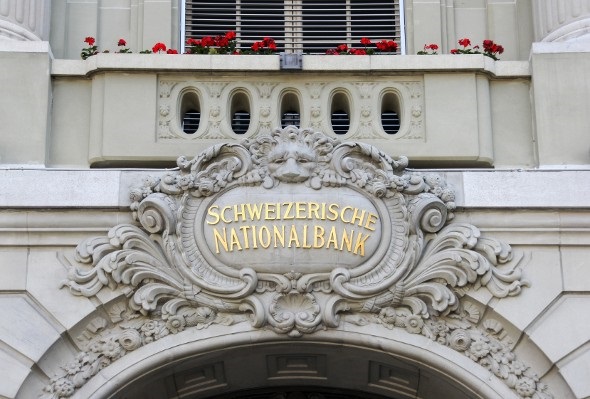Contrary to popular opinion, offshore banking is completely legal as long as you follow procedures and declare your accounts to the IRS. The bigger question is whether you should bother opening an offshore bank account. Of course, if you’re living abroad you’ll need a foreign bank account for practical reasons, but if you’re based stateside, there are pros and cons to going offshore.
A financial advisor can provide further insights into how offshore banking fits into your long-term financial goals.
Opening an Offshore Bank Account
“Offshore bank account” is the catch-all term for foreign bank accounts. Sometimes, these are used illegally to launder money and avoid income taxes. However, there is no legal way to keep money in a foreign bank account and avoid paying U.S. taxes if you ever want to use it on U.S. shores. Offshore bank accounts are still subject to IRS taxation and anyone with an offshore account should be careful to stay on the right side of U.S. tax law.
Offshore banking can have some advantages if you’re frequently in the foreign country where you bank, or if you’re earning higher interest rates abroad. Offshore banking laws governing taxation vary from country to country. In some countries you won’t be subject to local taxes, but in others you can expect to pay taxes on your money twice: once to the home country and once to the IRS.
Opening an offshore bank account will require, at minimum, identification and an initial deposit. You may also have to document your place of residency and obtain what’s called an apostille (an international version of having something notarized) for your supporting documents. These days, banks are careful to avoid clients who might have shady reasons for setting up a foreign account, but exact rules vary from bank to bank. Don’t expect to rock up to a fancy Swiss bank with your passport and $50 in cash and leave with a numbered account.
IRS Reporting Requirements and Offshore Penalties
If you have an offshore bank account, you may need to report it to the IRS. U.S. taxpayers with more than $10,000 in foreign accounts at any time during the year must file a Foreign Bank Account Report (FBAR) through the Financial Crimes Enforcement Network. This form is separate from your regular tax return and must be submitted online each year.
In addition to the FBAR, you may also have to file IRS Form 8938 if the total value of your foreign assets is above certain thresholds. These thresholds vary depending on your filing status and whether you live in the U.S. or abroad. The form is part of your annual tax return and helps the IRS track assets that could produce taxable income.
Failing to report foreign accounts can lead to serious penalties. If you forget to file an FBAR or Form 8938, you could face fines of thousands of dollars, even if the mistake was unintentional. For willful violations, the penalties are even higher and may include criminal charges. That’s why it’s important to understand the rules so you can properly report any offshore accounts.
Should You Open an Offshore Bank Account?

Switzerland, the Cayman Islands, and the Channel Islands are all hot spots for offshore banking but they’re not the only options. Once you know how to open an offshore bank account in the country you’ve selected, you’ll have to decide whether it’s worth it to do so. If you have lots of foreign investment income or own a company that incorporated abroad, maintaining a foreign bank account might be a no-brainer.
Between fees and taxes, though, maintaining an offshore bank account can get expensive. If you hold money in one currency and have to convert it to another currency to make a withdrawal you could lose money in the process. Currency exchange fees and unfavorable exchange rates can make moving between currencies expensive. Then there are maintenance fees and minimum balance requirements that, if not met, will result in a fee.
You should also think twice before transferring money or swiping the debit card or credit card associated with your foreign bank account. Why? Because you might incur transfer fees and foreign transaction fees. As with any bank account, you should be sure you understand the charges and fees attached to an offshore account.
How to Open a Swiss Bank Account
Switzerland is famous for its offshore banking options. That fame has led some regular folks to wonder how to get a Swiss bank account and whether they should get one. Swiss bank accounts are famous for their discretion, but that may be changing. A major Swiss bank recently released the names of thousands of account holders in cooperation with the IRS, which is cracking down on tax evaders. Don’t expect a bank, Swiss or otherwise, to help you evade U.S. federal income taxes in violation of local law.
Wondering how to open a Swiss bank account? You can fly to Switzerland, of course, but some banks allow new clients to open accounts by mail or by fax. You can also use a firm that specializes in helping American clients move money overseas. To prevent money laundering, Swiss banks require extensive documentation of your assets, income and investments. Opening a Swiss bank account is not as simple as faxing a copy of your passport and wiring the funds.
Aside from the discretion and prestige factors, why do people bother with Swiss bank accounts? Well, Swiss bank accounts offer attractive interest rates as an incentive to foreign depositors. When you open a Swiss bank account you’ll have the option of choosing the currency for your account. Choose Swiss francs and you’ll pay Swiss withholding taxes. You can opt for dollars, pounds or euros if you would prefer to keep your money in a money market fund that can earn interest free of Swiss taxation. Just remember those currency conversion fees mentioned above.
Bottom Line

Opening an offshore bank account is not something most of us will seriously consider. For many Americans, maintaining the required minimum balance for a U.S. bank account is hard enough. But if you want to take advantage of some of the perks of offshore banking, there are accounts in Switzerland and other countries waiting for customers like you. Just remember to comply with IRS rules.
Banking Tips
- A financial advisor can help you determine what role offshore banking might play in your financial plan. SmartAsset’s free tool matches you with financial advisors who serve your area, and you can interview your advisor matches at no cost to decide which one is right for you. If you’re ready to find an advisor who can help you achieve your financial goals, get started now.
- When it comes to finding the best savings accounts with the best rates and conditions that appeal to you, there’s plenty of information available online. Banks are constantly competing for your service, so they aim to make better products. But with so many options to choose from, it can be a challenge. To narrow your search, we published a study on the best banks in the U.S.
Photo credit: ©iStock.com/Nicolas McComber, ©iStock.com/apomares, ©iStock.com/yuelan
